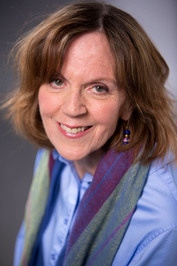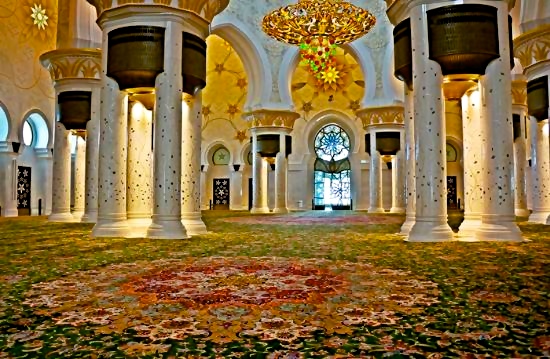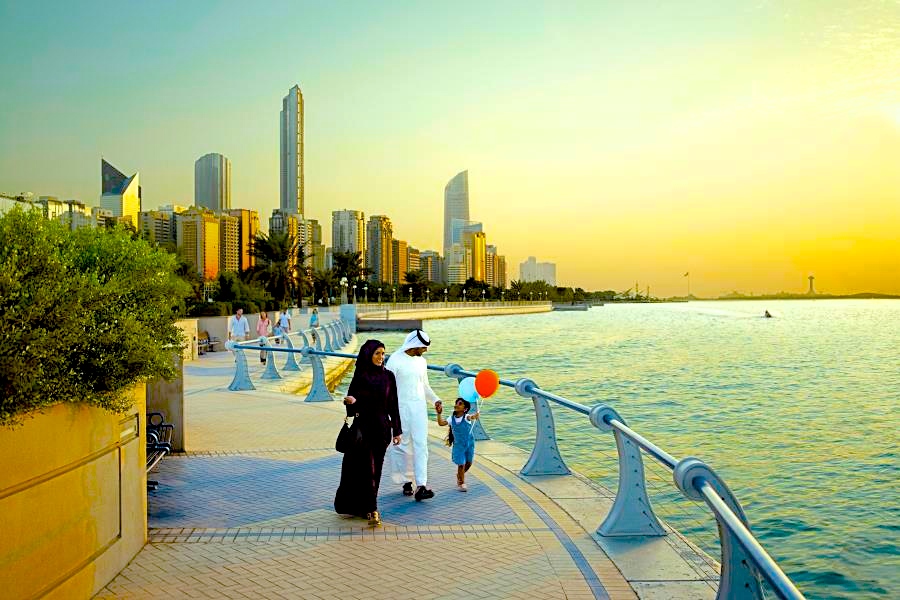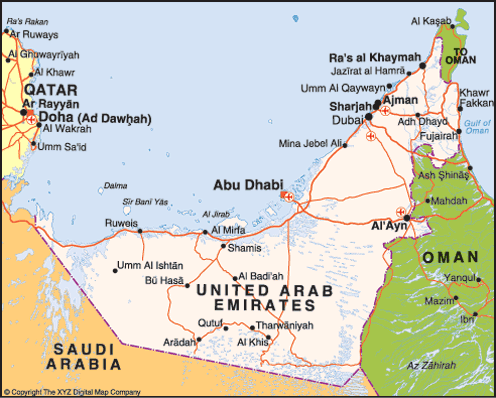“No man sauntering along on a camel from Al Ain to Abu Dhabi in 1960 could have imagined that in a decade he’d be driving a Mercedes on a highway and arriving in less than two hours…[But when] I look around me – at the palms and the dunes, at the Bedu men who greet each other by touching noses, I [still] feel the biblical rhythm of life. The desert is home, will always be home, despite asphalt and airplanes, oil rigs and steel girders…The sky, the heat, the emptiness will keep us rooted.”
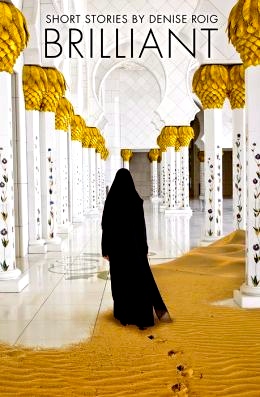 With its stunning cover, contrasting the architectural details of the Sheikh Zayed Grand Mosque with the elemental sand which is its underpinning, Denise Roig’s collection of interconnected stories opens a vibrantly exotic and alien world to English-speaking readers. Illustrating the disparities of social life within the United Arab Emirates as lived by those who make up its oil-rich economy, these stories highlight universal themes within domestic circumstances which every reader will be able to appreciate: a pastry chef from Egypt, so poor he has to sleep inside a flour bag, wants to present a special gift to the sheikh he admires and who employs him; a Filipina servant woman begs to borrow a cellphone from a neighbor woman in order to escape her abusive circumstances; a doctor delivers the baby of a fourteen-year-old girl, who has no idea what is happening to her; a limo driver voluntarily takes the obnoxious son of his employer to see an experimental “green city” where both learn an important lesson; a newcomer to Abu Dhabi endangers the status quo by “overpaying” her help; an Anglican priest, a Catholic bishop, and a sheikh meet to discuss how to bring the country into the twenty-first century in terms of its thinking.
With its stunning cover, contrasting the architectural details of the Sheikh Zayed Grand Mosque with the elemental sand which is its underpinning, Denise Roig’s collection of interconnected stories opens a vibrantly exotic and alien world to English-speaking readers. Illustrating the disparities of social life within the United Arab Emirates as lived by those who make up its oil-rich economy, these stories highlight universal themes within domestic circumstances which every reader will be able to appreciate: a pastry chef from Egypt, so poor he has to sleep inside a flour bag, wants to present a special gift to the sheikh he admires and who employs him; a Filipina servant woman begs to borrow a cellphone from a neighbor woman in order to escape her abusive circumstances; a doctor delivers the baby of a fourteen-year-old girl, who has no idea what is happening to her; a limo driver voluntarily takes the obnoxious son of his employer to see an experimental “green city” where both learn an important lesson; a newcomer to Abu Dhabi endangers the status quo by “overpaying” her help; an Anglican priest, a Catholic bishop, and a sheikh meet to discuss how to bring the country into the twenty-first century in terms of its thinking.
These are just a few of the characters who come and go and sometimes overlap within these stories illustrating the impossible riches held by the sheikhs and their families and the almost unimaginable poverty in which their help lives and tries to earn money to send home to their hungry families in other countries. The only members of the middle class who appear here are the educated foreign professionals who have been hired to work for Emirati businesses or as teachers, doctors, and nurses. The author walks a fine line here, clearly admiring the work of some of the sheikhs who care about the country at large and work toward its improvement, and her abhorrence of the abuses visited upon helpless, usually immigrant, employees by their bullying employers, who often take the passports of their help so that they cannot leave and cannot complain about long hours and often withheld wages and food. The stories of the educated foreigners making reasonable salaries become the literary buffers between the very rich and the very poor, enabling the author to make her points about all aspects of society without constantly resorting to black and white stereotypes. The biggest difference among these groups is that only the middle class is really free to leave.
The professional class here has come primarily from the United States, England, Canada, Scotland, and other first world, mostly English-speaking, countries, bringing their values and goals with them and forming their own societies within the complexes in which they live. The poor here – employed primarily as nannies, cooks, housekeepers, and maids – come from the Philippines, Egypt, Indonesia, Pakistan, and Palestine. These poor immigrant women live primarily with the families for whom they work, their movements constantly under watch, their freedoms severely curtailed. The poor men tend to live in labor camps and dorms, sometimes with twelve men to a bunk, and while they have more freedom, their lives and choices are almost as limited as those of the women. Shifting points of view allow people from each of these groups to speak directly to the reader.
Three short sections – “Oasis, 1962”; “Oasis, 1972”; and “Oasis, 1973” – inserted among the stories, help to set the time periods and provide factual information about the formation and development of the Emirates, the climate, the rulers, and their history from a time in which only fifty percent of all babies and only two-thirds of all pregnant women survived, to a time ten years later in which a well-equipped hospital with private baths and air-conditioning is almost completed in the same location. In the same ten years, the number of cars has increased from a handful to eight thousand in Abu Dhabi alone. The speed of growth is almost impossible to digest.
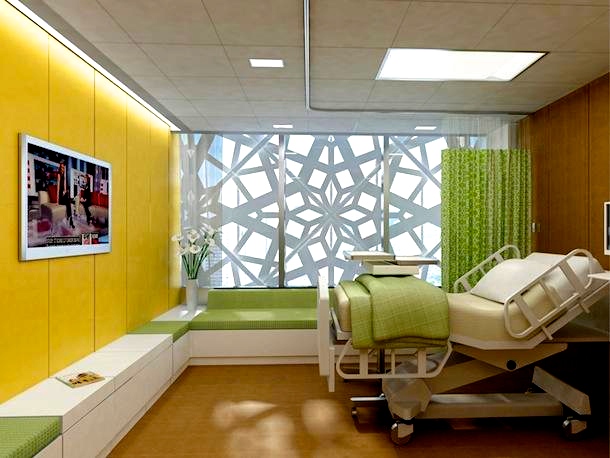
The Sheikh Khalifa Medical Center, now working with the Cleveland Clinic, shows an elegant room in which there is a flat screen TV, co-ordinated colors, and wonderful masonry outside the window creating patterns and shadows inside the room, a far cry from what existed just a generation ago.
The futility of life for some of these characters, particularly the poor and uneducated immigrants who do the daily work for the wealthy, is exacerbated by the lack of respect in which they are held, yet Roig describes the kindness of one starving, abused servant whose desire to help someone else in need shines through when she has her only chance to escape. Some of the wealthy seem to regard their dependent help as throw-aways, just as they also sometimes build “bright new things,” which they abandon or allow to decay because of “the drudgery of having to make [them] work.” Justice is not democratic. A nanny whose clothes were set on fire by the “devil boy” for whom she served as nanny finds that the family she worked for blames her for the incident. Someone who is hit by a car has no redress. “Ugly facts were neatly tucked into a head scarf, and if it had been an Emirati who’d hit [the victim], then that truly was the end of it.” A group of four teenagers, one the son of a professional worker from another country and the others Emiratis, all of whom are involved with cocaine, find only the foreigner incarcerated, with the three Emiratis leaving him to face the punishment alone. Ultimately, the greed of some of the foreigners who become caught up in the frenzy to buy, buy, buy, leads to a kind of blindness, and when the crash comes, as it inevitably does, disaster is only a step away. As one character remarks, “Sand moves fast. It eats you every time.”
ALSO set in the Persian Gulf: SMALL KINGDOMS, by Anastasia Hobbet, set in Kuwait, and THE DOG by Joseph O’Neill, set in Dubai.
Photos, in order: The author ‘s photo appears on http://www.goodreads.com/
The Sheikh Zayed Grand Mosque, courtesy of Trip Advisor, may be found on http://www.tripadvisor.com.au
A family in Abu Dhabi walks along the Corniche: http://visitabudhabi.ae
An elegant hospital room from the Sheikh Khalifa Medical Center appears on http://www.aia.org/
This map of the United Arab Emirates may be found on http://www.juancole.com Double click to enlarge.
